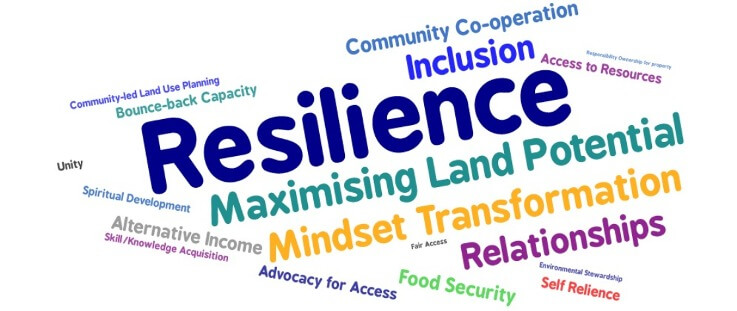The Anglican Alliance is keen to support the local church to build their resilience and preparedness before an emergency, so that they can mitigate the impact of emergencies and respond more effectively when they happen. Resilience and preparedness can also be termed Disaster Risk Reduction (DRR), but for churches and communities it is about a lot more than disaster risk reduction.
Building resilience strengthens communities and can reduce loss of life and property during an emergency. A group of Anglican partners, both churches and agencies, came together in 2013-14 to develop a toolkit for the local church to build their resilience and preparedness. Convened by Episcopal Relief & Development, this group created the Pastors and Disasters toolkit, available here. The Toolkit has now been translated into French, Spanish and Portuguese, and together with more information, can be accessed here.
The Pastors and Disasters Toolkit has been used successfully in several parts of the world with real positive impact on communities through the preparedness and improved response of the local church after an emergency. A good example is Sri Lanka, read more here.
A Resilience and Church and Community Mobilisation (CCM) workshop in Harare, Zimbabwe, in early 2018, identified the following characteristics for a resilient community: community cohesion, diversified livelihoods, land management, infrastructure, human capital and shared analysis.
In this context, the recent challenges had been drought, hyperinflation and political tension. Having visited communities in three regions of Zimbabwe that were working on their resilience, the following were identified by participants as key features within these characteristics that strengthened community resilience:

From this it was clear that resilience in these communities came particularly from improved community cohesion and human capital, as well as diversified livelihoods. Communities that come together and plan and prepare for a stronger future have the capacity to withstand shocks, such as drought, better than those that have not. You can learn more about the impact of this on St Christopher’s Church in Rugare, Diocese of Harare, Zimbabwe here
You can read more about the insights gained from the Zimbabwe multi-partnership learning workshop on resilience here.
The local church can go beyond meeting material needs. It is well placed to meet needs that outside agencies don’t have the capacity to meet such as providing safe spaces for the vulnerable, social and spiritual support, someone trusted to listen to the traumatised to help overcome loneliness, despair and hopelessness, caring for the most vulnerable such as the elderly, the very young and those with disabilities.
In situations of conflict, the church is very important in promoting reconciliation, forgiveness and reuniting communities at local level, as well as at national and regional level. These are great strengths of churches and their value should not be underestimated in the wider response.
For example, Anglicans in DR Congo are reuniting women with their families in a community where rape and sexual violence are used as weapons of war. The Alliance is learning the lessons from DR Congo to share with the wider Anglican Communion.
Building capacity and sharing best practice
The Alliance is a learning organisation, encouraging sharing of experience and learning from churches, agencies and other partners and disseminating best practice. One of our priorities is to improve the level of support that churches are able to provide for their communities, as the most vulnerable are always most impacted by disasters.
This can be through capacity building in response and resilience before an emergency, including promoting the use of international humanitarian standards, which will allow support from non-church partners. A key tool for this is the Pastors and Disasters Toolkit. But also through regional surge support at the time of an emergency.
We are piloting Anglican Partners in Response and Resilience (PiRR), regional capacity support both for emergency response, but also for building resilience and preparedness before an emergency. Individuals and organisations with skills in disaster response and in resilience and preparedness are being identified, trained and supported to be able to accompany other churches in their region.
• There will be teams ready to come, at the invitation of the local church, and offer support and guidance during an emergency.
• There will be teams ready to visit and help build local capacity in resilience and preparedness before an emergency, to reduce the impact on communities, such as injury and loss of life, loss of crops and livelihoods, damage to buildings and infrastructure.
One of the important facets of Partners in Response and Resilience will be supporting local networking, to connect the local church to humanitarian and development agencies locally, such as the ACT Alliance forum, the NGO forum and the UN coordination system.
To learn more about Anglican Partners in Response and Resilience, or to offer your skills and experience, please contact the Anglican Alliance relief manager, anglicanalliance@aco.org or your regional facilitator.
The Anglican Alliance is raising awareness around the Anglican Communion of the importance of resilience and preparedness, looking to strengthen the leadership of the local church in this field, encouraging mainstreaming of resilience and preparedness in all development initiatives and producing resources that will help the local church staff to work in this area.
Read more about resilience and disaster risk reduction.
If you have an experience to share or if you want to know more about our work, please contact anglicanalliance@aco.org.
